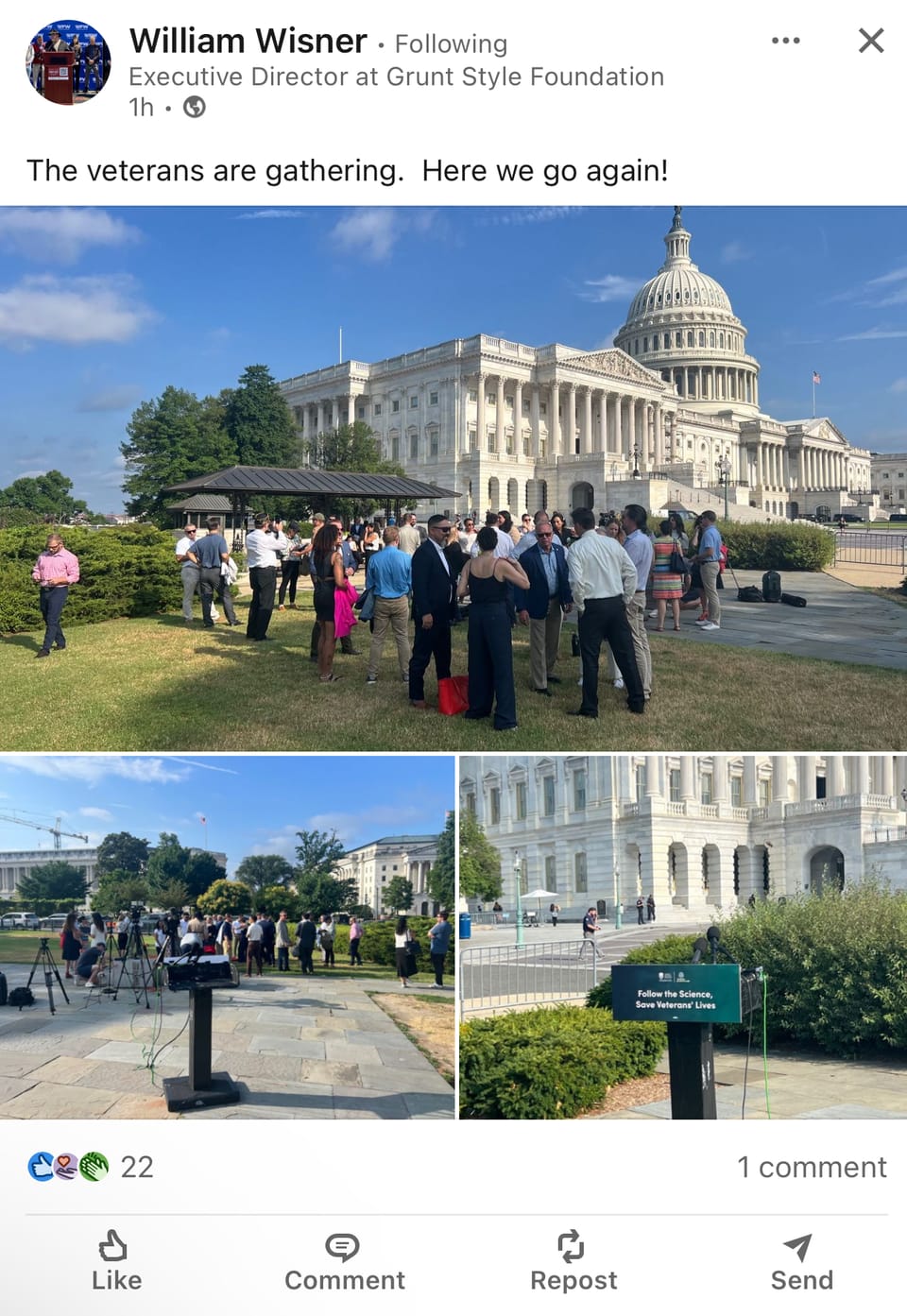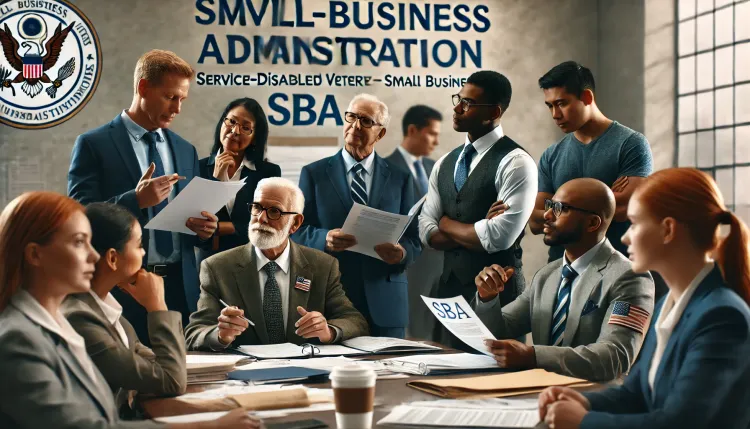More Unreported Lobbying From Grunt Style Foundation

Today, the Grunt Style Foundation, unregistered federal lobbyist, represented by unregistered federal lobbyist William Wisner, continues to lobby members of Congress for increased scrutiny of lawfully prescribed anti-depressant, anti-psychotic, and anti-anxiety medications.
This lobbying effort is carried out on behalf of partisan donors, potential corporate donors, and partisan think tanks, and its full extent remains unknown due to Grunt Style's continued disregard for the Lobbying Disclosure Act.
Some members of the veterans community think that they are above federal law, public scrutiny, and fair play, flaunting disclosure laws and regulations to assert a partisan goal. Unfortunately, it’s impossible to know why they’re truly lobbying so aggressively against life-saving medications—under the seemingly innocent guise of informed consent—because select nonprofits like GSF fail to disclose their lobbying to the public.
To read more about the partisan initiatives to limit life-saving medications for military members and veterans, read the prior article:https://see-you-space-vet.ghost.io/big-stick-lobbying-how-grunt-styles-tactics-threaten-va-prescription-practices/
The lack of transparency and accountability in Grunt Style Foundation’s lobbying efforts raises significant concerns about the motivations behind their aggressive campaign against essential medications. The veterans' community, which heavily relies on these medications to manage PTSD, depression, and anxiety, is put at risk by such unregulated and undisclosed lobbying activities.
The Lobbying Disclosure Act mandates that organizations engaging in significant lobbying efforts must register and report their activities to ensure transparency and public oversight. However, Grunt Style Foundation's disregard for these legal requirements suggests a troubling pattern of behavior. By bypassing these regulations, they operate in the shadows, making it difficult for the public and policymakers to understand who is influencing decisions that affect the health and well-being of veterans.
Moreover, the involvement of partisan donors and think tanks in this lobbying effort further complicates the issue. It is unclear whether the push against these medications is genuinely in the interest of veterans or if it is driven by political and financial agendas. The potential influence of corporate donors, who might benefit from changes in prescription practices, cannot be overlooked. This murky intersection of politics, money, and healthcare creates a toxic environment where the needs and voices of veterans are overshadowed by hidden interests.
Informed consent is a crucial aspect of medical practice, ensuring that patients are fully aware of the benefits and risks of their treatments. However, the Grunt Style Foundation's campaign, under the guise of promoting informed consent, appears to be a strategic move to restrict access to necessary medications. This approach not only undermines the trust between veterans and their healthcare providers but also jeopardizes the mental health and stability of those who have served our country.
The veterans' community deserves transparency and honesty from organizations that claim to advocate on their behalf. It is imperative for entities like the Grunt Style Foundation to comply with federal laws and provide clear, truthful information about their lobbying activities. Only then can we ensure that veterans' interests are genuinely represented and protected.
To address this issue, there needs to be a concerted effort from both the public and policymakers to demand greater accountability from organizations engaged in lobbying. Strengthening the enforcement of the Lobbying Disclosure Act and increasing penalties for non-compliance can serve as deterrents for those who seek to operate in the shadows. Additionally, fostering a culture of transparency and ethical behavior within the nonprofit sector is essential to restoring trust and ensuring that the advocacy for veterans is conducted with integrity and respect.
As the debate over the regulation of prescription medications for veterans continues, it is crucial to prioritize the well-being of those who have sacrificed so much for our nation. Veterans deserve access to comprehensive, evidence-based treatments without the interference of undisclosed and potentially biased lobbying efforts. The health and lives of veterans depend on our collective commitment to transparency, accountability, and fair play in all advocacy activities





Member discussion